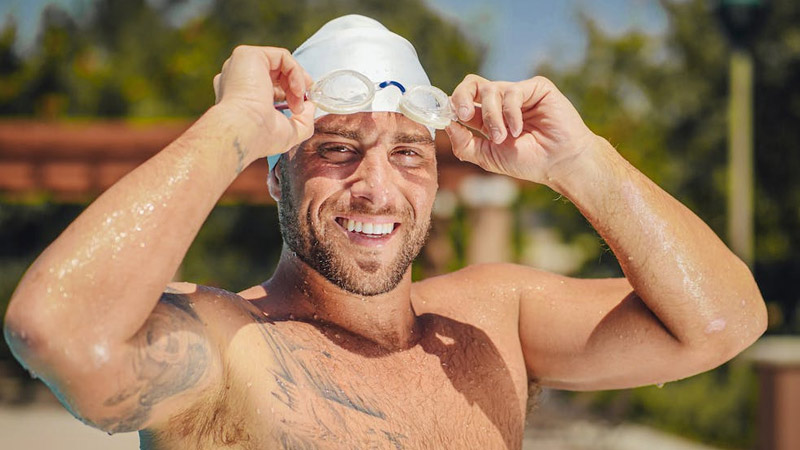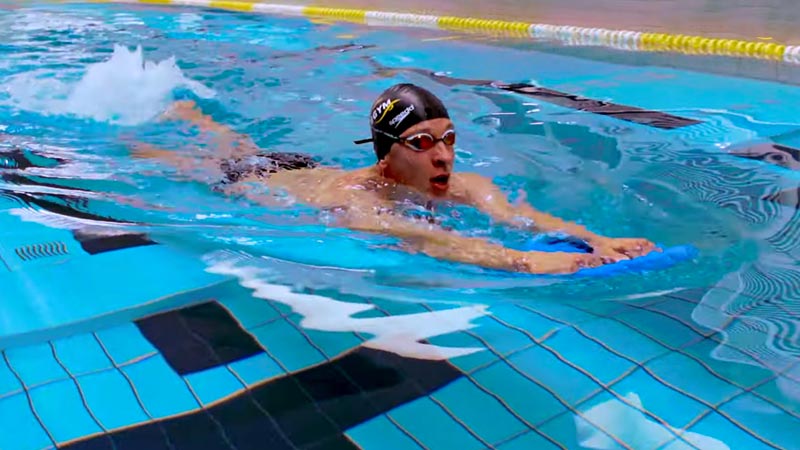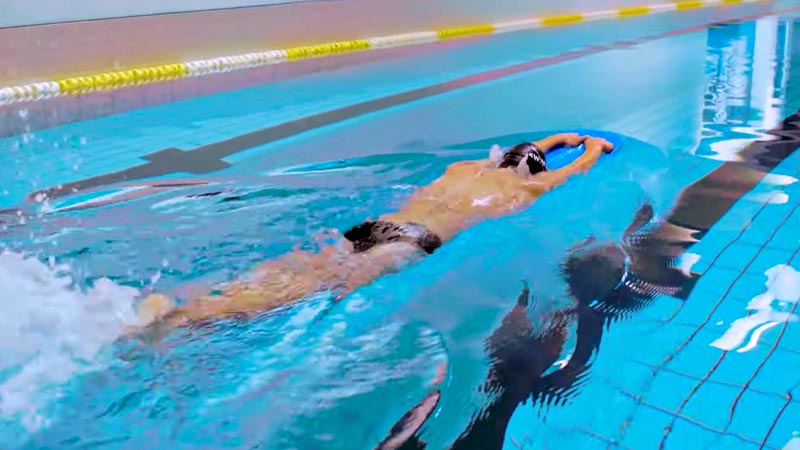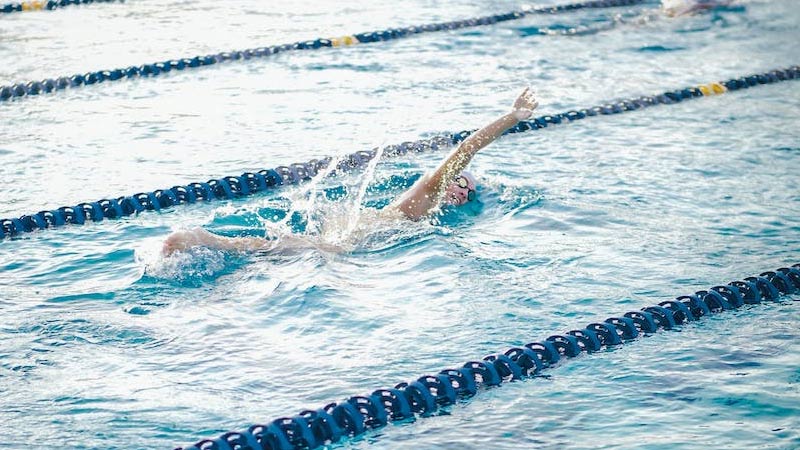Swimming is a popular and refreshing way to stay active, especially during the scorching summer months.
However, a persistent myth has led many to believe that the body absorbs a significant amount of water while swimming, leading to concerns about hydration and bloating.
In our quest to separate fact from fiction, this blog post delves into the intriguing question:
Does your body absorb water when you swim? We’ll explore the role of the skin, its semi-permeable nature, and the processes involved in water absorption during aquatic activities.
By understanding the science behind this phenomenon, you can make more informed decisions about staying hydrated while enjoying your time in the pool, lake, or ocean.
Does Your Body Absorb Water When You Swim?
It’s matter of a common confusion on Whether your body absorbs water when swimming. When you swim, your body does absorb a small amount of water through the skin.
However, the amount of water that your body absorbs while swimming is typically minimal and not a cause for concern.
Your skin acts as a semi-permeable barrier, allowing some water to pass through, but it is not like a sponge that soaks up large amounts of water.
Most of the water that you come into contact with while swimming will not be absorbed by your body.
Instead, your skin may become temporarily hydrated due to the water exposure, and any water that does get absorbed will generally be excreted through your body’s natural processes, such as urination and sweating.
The Myth of Water Retention After Swimming

There is a common misconception that people may experience water retention after swimming, often referred to as “swimmer’s bloat.”
This idea suggests that the body somehow absorbs a large amount of water during swimming, leading to temporary bloating or weight gain.
However, this notion is largely a myth. Swimming does not cause significant water retention in the body.
While you may feel temporarily bloated or “full” after a swim due to the sensation of water on your skin and the feeling of having been immersed in water, this is not the same as actual water retention within your body’s tissues.
Any excess water absorbed through the skin while swimming is typically eliminated by your body’s natural regulatory processes, such as urination and sweating.
True water retention, which can be caused by various medical conditions or imbalances in the body’s fluid regulation system, is unrelated to swimming and is not a common consequence of swimming as a recreational or exercise activity.
How Does the Body Absorb Water While Swimming?
The human body can absorb a small amount of water through the skin while swimming, but this process is not a primary source of hydration and generally involves minimal absorption.
Here’s how it works:
Skin As a Semi-permeable Barrier
The skin is a complex organ with multiple layers and functions, including serving as a semi-permeable barrier.
This means that it allows some substances to pass through, including water, but it also helps to prevent excessive water loss and protect the body from external elements.
Skin Absorption
When you are in water, some of it can be absorbed through the outermost layer of the skin, known as the epidermis.
This absorption occurs because the skin’s cells have small spaces between them that can allow water molecules to pass through.
Limited Absorption
The rate of water absorption through the skin is relatively slow and not efficient for meeting the body’s hydration needs.
The amount of water absorbed in this way is typically minimal and not sufficient to significantly impact your overall hydration.
Regulatory Mechanisms
The human body has robust regulatory mechanisms to maintain proper hydration levels.
Excess water absorbed through the skin or other means is typically eliminated through bodily functions such as urination and sweating.
While your body can absorb a small amount of water through the skin when you swim, it is not a primary or significant means of hydration.
Staying properly hydrated while swimming is generally achieved by drinking water and other beverages to replenish the fluids lost through sweating and exertion.
Skin absorption of water is a relatively slow and minor process in the overall context of the body’s fluid regulation.
The Skin’s Role in Swimming

Yes, the skin can absorb a small amount of water when you swim. The outermost layer of the skin, called the epidermis, is somewhat permeable, which means it allows some substances, including water, to pass through it.
However, the rate of water absorption through the skin is relatively slow, and the amount of water absorbed is generally minimal.
The skin’s ability to absorb water serves various functions, including:
Temperature Regulation
Water absorption through the skin can help with cooling the body in warm water environments. This is especially important during activities like swimming, as it can prevent overheating.
Hydration
While the skin can absorb some water, it is not a primary or significant means of hydration for the body. The primary method of maintaining hydration during swimming is by drinking fluids.
Skin Hydration
Water absorption through the skin can temporarily hydrate the outermost layer of the skin, which can affect the skin’s appearance and texture.
However, this hydration is relatively superficial and not a substitute for proper internal hydration.
It’s essential to stay properly hydrated while swimming by drinking water or other beverages. The amount of water absorbed through the skin is generally not enough to have a substantial impact on your overall hydration.
The primary function of the skin is to act as a barrier that helps regulate the body’s interaction with the external environment, including controlling water absorption.
Does Skin Absorb Water When Swimming?

Yes, the skin can absorb a small amount of water when you swim. The outermost layer of the skin, called the epidermis, is somewhat permeable, which means it allows some substances, including water, to pass through it.
However, the rate of water absorption through the skin is relatively slow, and the amount of water absorbed is generally minimal. The skin’s ability to absorb water serves various functions, including:
Temperature Regulation
Water absorption through the skin can help with cooling the body in warm water environments. This is especially important during activities like swimming, as it can prevent overheating.
Hydration
While the skin can absorb some water, it is not a primary or significant means of hydration for the body. The primary method of maintaining hydration during swimming is by drinking fluids.
Skin Hydration
Water absorption through the skin can temporarily hydrate the outermost layer of the skin, which can affect the skin’s appearance and texture.
However, this hydration is relatively superficial and not a substitute for proper internal hydration.
It’s essential to stay properly hydrated while swimming by drinking water or other beverages. The amount of water absorbed through the skin is generally not enough to have a substantial impact on your overall hydration.
The primary function of the skin is to act as a barrier that helps regulate the body’s interaction with the external environment, including controlling water absorption.
FAQs
Do you absorb water while swimming?
No, your body does not absorb water when you swim. The skin is designed to be a barrier that prevents water from being absorbed into the body.
Does swimming make you retain water?
Swimming itself does not cause water retention. However, you may retain water due to other factors, like diet or medical conditions, unrelated to swimming.
Does your body absorb water in the pool?
No, your body does not absorb water from the pool while swimming. Water may temporarily stick to your skin or hair, but it is not absorbed into your body.
Does swimming cause water retention?
Swimming alone does not cause water retention. Water retention can result from various factors, such as diet, hormonal changes, or underlying medical conditions.
Does the body absorb water when swimming?
The body does not absorb water during swimming. The skin acts as a protective barrier, preventing water from entering the body, which would otherwise lead to dehydration and electrolyte imbalances.
Wrapping Up
The idea that your body absorbs a significant amount of water when you swim is largely a myth. While your skin does allow some water to pass through, the rate of absorption is slow, and the amount is minimal.
Hydration while swimming is primarily achieved by drinking fluids, not by relying on water absorption through the skin.
Understanding this fact should put to rest any concerns about water retention or bloating due to swimming.
It’s crucial to prioritize proper hydration during and after your aquatic adventures to ensure a safe and enjoyable experience.
So, dive into the water with confidence, knowing that your skin’s role in water absorption is not a cause for worry, and relish the countless benefits that swimming offers for your health and well-being.







